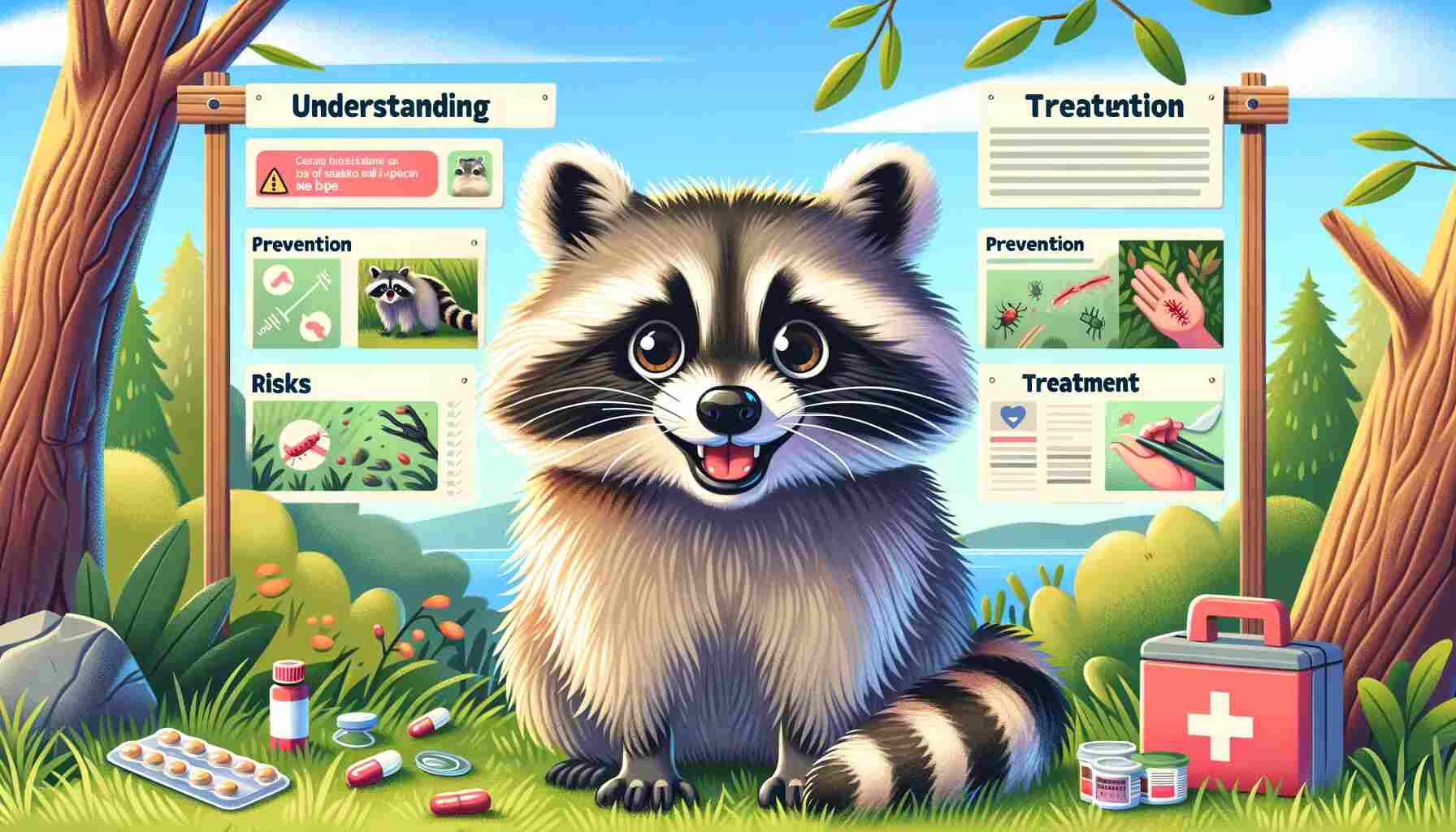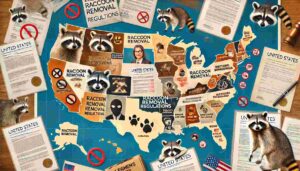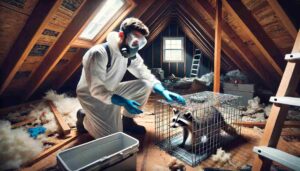Raccoons, with their curious and sometimes unpredictable nature, have long fascinated humans. However, encounters with these creatures can sometimes result in bites, raising concerns about potential risks to human health.
Understanding Raccoon Bite Behavior
Raccoon bites, while relatively rare in human encounters, can occur and are a significant aspect of raccoon behavior, particularly in situations where raccoons feel threatened or cornered. Here’s an overview of raccoon bite behavior:
1. Defensive Behavior
Raccoons typically bite as a defensive measure rather than out of aggression. They are more likely to flee than confront but will bite if they feel trapped or if their young are threatened.
2. Feeding-Related Incidents
Some bites occur during feeding interactions when a raccoon is being fed by humans or is attempting to access human-provided food. Raccoons can become aggressive if they perceive a person as trying to take their food away or if they are surprised while eating.
3. Disease and Aggression
Rabies is a concern with any mammal bite, including raccoons. A raccoon with rabies may exhibit unusually aggressive behavior, leading to unprovoked attacks. However, not all raccoon bites are due to rabies; other diseases or conditions (such as distemper) can also alter a raccoon’s behavior, making them more prone to biting.
4. Territorial Disputes
Raccoons may bite if they perceive an intruder in their territory, especially during the breeding season when they are more territorial.
5. Handling
Attempting to handle or capture a raccoon is another common scenario leading to bites. Wild raccoons do not like to be restrained and will use their teeth as a means of defense.
Risks Associated with Raccoon Bites
Raccoon bites can pose several risks to human health, primarily due to the potential transmission of diseases and infections. One of the most concerning diseases associated with raccoons is rabies.
Rabies is a viral disease that affects the central nervous system and is typically transmitted through the saliva of infected animals, most commonly through bites. Raccoons are among the wildlife species known to carry and transmit rabies to humans and other animals.
In addition to rabies, raccoon bites can also introduce bacteria into the wound, leading to infections such as tetanus or bacterial cellulitis. These infections can cause localized pain, swelling, redness, and in severe cases, systemic symptoms such as fever and malaise.
Preventing Raccoon Bites
Prevention is key to avoiding raccoon bites and minimizing the associated risks. Here are some effective strategies to prevent encounters with raccoons and reduce the likelihood of bites:
1. Secure Trash
Raccoons are attracted to sources of food, including unsecured trash bins. Keep trash cans securely closed with tight-fitting lids to prevent raccoons from accessing them.
2. Seal Entry Points
Raccoons can enter buildings through openings in attics, basements, or crawl spaces. Seal any potential entry points with sturdy materials to prevent raccoon intrusion.
3. Remove Food Sources
Avoid leaving pet food or birdseed outside, as these can attract raccoons. If feeding pets outdoors, do so during the day and promptly remove any leftover food.
4. Install Deterrents
Motion-activated lights or sprinkler systems can deter raccoons from entering your property. Additionally, commercially available deterrents such as ultrasonic devices or predator urine may help keep raccoons at bay.
5. Keep Pets Supervised
If you live in an area frequented by raccoons, supervise your pets when they are outdoors, especially during dusk and dawn when raccoons are most active.
6. Vaccinate Pets
Ensure that your pets are up-to-date on their rabies vaccinations to protect them from potential exposure to rabid raccoons.
7. Educate Children
Teach children to observe raccoons from a safe distance and avoid approaching or attempting to touch them.
8. Avoiding Interaction
The best way to prevent raccoon bites is to avoid direct interaction with raccoons, not feed them, and secure food sources.
Have you ever consider to use poison to get rid of raccoons if so: read this: Raccoon Poison: Risks & Alternatives
Treatment for Raccoon Bites
If you or someone else is bitten by a raccoon, prompt and appropriate treatment is essential to prevent complications. Here are the steps to take following a raccoon bite:
1. Wash the Wound
Thoroughly clean the bite wound with soap and water for at least five minutes to reduce the risk of infection. Use an antiseptic solution such as hydrogen peroxide or iodine if available.
2. Apply Antiseptic
After cleaning the wound, apply an over-the-counter antiseptic ointment to further disinfect the area and promote healing.
3. Seek Medical Attention
Regardless of the severity of the bite, it’s important to seek medical attention promptly. A healthcare provider can assess the wound, administer appropriate treatment, and determine if further medical interventions are necessary.
4. Rabies Vaccination
If there is a risk of rabies transmission, the healthcare provider may recommend receiving a rabies vaccine and, in some cases, rabies immune globulin (RIG) as a preventive measure.
5. Antibiotics
If the bite has broken the skin and there is a risk of bacterial infection, the healthcare provider may prescribe antibiotics to prevent or treat secondary infections.
6. Tetanus Vaccination
If the individual has not received a tetanus vaccine within the last five to ten years, the healthcare provider may recommend a tetanus booster shot to prevent tetanus infection.
Statistics
Animal bites, including those from raccoons, require careful treatment and management. All wounds should be extensively irrigated, and tetanus status updated if necessary. Bites can lead to various complications, such as cellulitis, abscesses, and, in some cases, rabies. The prognosis for most animal bite injuries is excellent with proper treatment, but outcomes can vary depending on the severity and location of the bite. It’s crucial to educate individuals on the importance of immediate medical attention following any wildlife bite due to the risk of rabies and other infections.
Regarding rabies, which is a concern with raccoon bites, the CDC outlines that any wildlife animal that exposes a person through a bite or scratch should be tested for rabies as soon as possible. This helps determine the need for rabies postexposure prophylaxis in the exposed individual. Small rodents and certain other wild animals are rarely infected with rabies, but raccoons are among the wildlife species most often infected with rabies in the United States. Therefore, bites by such animals should always be taken seriously and assessed for rabies risk.
While these insights don’t provide specific statistics on raccoon bites, they underscore the importance of treating all animal bites with caution, the potential health risks associated with them, and the procedures followed in the event of a bite, especially regarding rabies prevention and treatment.
For more detailed guidelines on managing animal bites and understanding the risk of rabies, please refer to resources like the National Center for Biotechnology Information’s StatPearls NCBI and the Centers for Disease Control and Prevention (CDC) CDC on rabies.
Conclusion
Encounters with raccoons can sometimes result in bites, which can pose risks to human health due to the potential transmission of diseases and infections. Understanding raccoon behavior, implementing effective prevention strategies, and knowing how to respond in the event of a bite are essential for minimizing risks and promoting safety.
Remember to always exercise caution around wildlife and seek prompt medical attention if bitten by a raccoon. With proper precautions and awareness, you can coexist safely with these fascinating creatures in their natural habitat.
Here’s your next read: Raccoon Adoptions: Facts, Considerations, and Care










